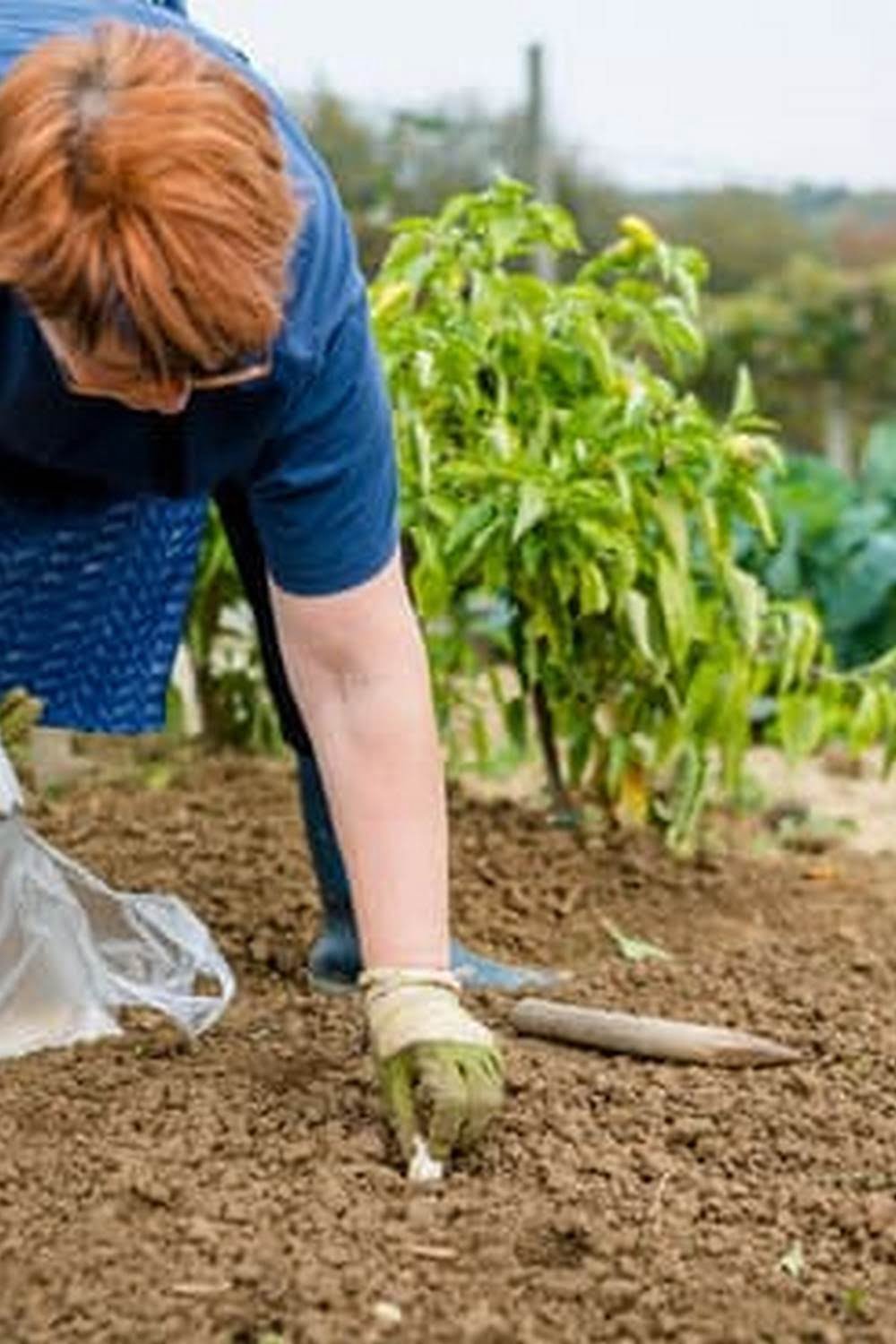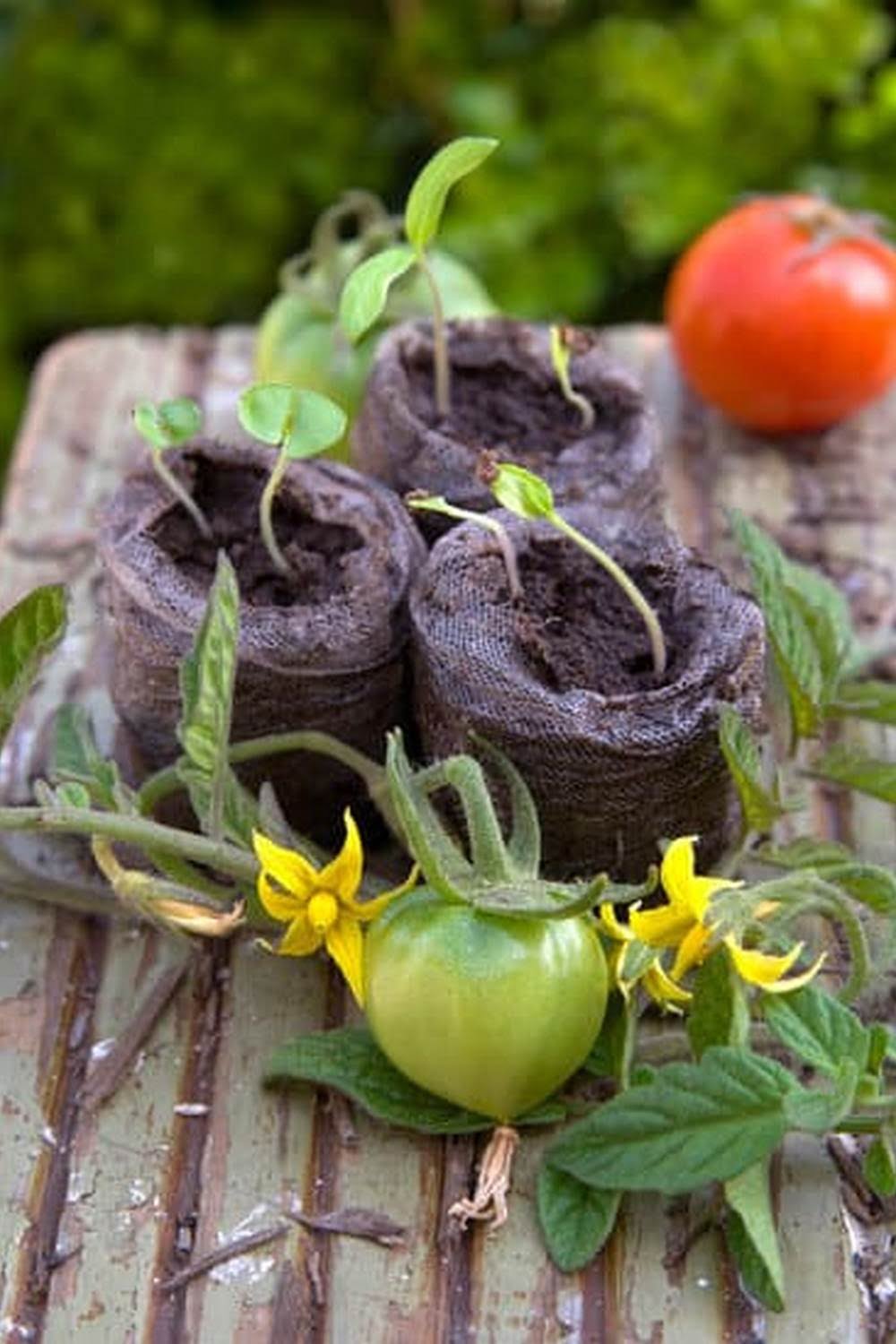As the winter months approach, it is crucial for gardeners to start thinking about how to prepare their soil for the colder season. Winter soil preparation for vegetable gardens is essential for maintaining the health and productivity of your garden.
In this article, we will explore the importance of winter soil preparation, how to assess your garden’s soil needs, best practices for amending and conditioning winter soil, choosing cover crops for protection, preventing erosion and nutrient runoff, and maintaining soil health and balance during the winter months.
Understanding the importance of winter soil preparation is key to ensuring a successful vegetable garden in the coming seasons. Not only does proper preparation help protect your garden from harsh winter conditions, but it also sets the stage for healthy and bountiful yields come spring. By taking proactive measures now, you can lay a strong foundation for your garden’s success in the future.
Assessing your garden’s soil needs for the winter is an important step in preparing for the colder months. Different soils have different requirements, so it’s essential to understand what your specific garden needs in order to thrive during winter. Whether it’s testing pH levels, checking for nutrient deficiencies, or evaluating moisture retention, knowing your soil’s characteristics will guide you in making informed decisions regarding amendments and conditioners.
Understanding the Importance of Winter Soil Preparation for Vegetable Gardens
As the growing season comes to an end, it is crucial to start thinking about preparing your vegetable garden’s soil for the winter months. Proper winter soil preparation is essential for maintaining soil health and ensuring a successful growing season in the spring. By taking the time to assess your garden’s soil needs and implementing best practices for winter soil amendment and conditioning, you can protect your garden from erosion, nutrient runoff, and other potential hazards.
The winter months can be harsh on garden soil, leading to depletion of nutrients and loss of soil structure. Without proper preparation, your garden’s soil may become compacted, lacking essential nutrients, and susceptible to erosion. However, by understanding the importance of winter soil preparation and taking proactive measures, you can ensure that your vegetable garden’s soil remains healthy and fertile throughout the winter.
To help you understand the significance of winter soil preparation for vegetable gardens, here are some key points to consider:
- Maintaining soil structure: Winter soil preparation helps prevent compaction and loss of structure caused by frost and heavy rainfall.
- Retaining nutrients: Amending your garden’s soil before winter helps maintain a balanced nutrient profile and prevents nutrient leaching.
- Preventing erosion: Properly conditioned soil with adequate cover crops can help protect against erosion during winter storms.
By prioritizing winter soil preparation for your vegetable garden, you are investing in the long-term health and productivity of your garden soil. It is an essential step in ensuring bountiful harvests in the coming growing season.
Assessing Your Garden’s Soil Needs for the Winter
Soil Testing
Before making any amendments to your soil, it is essential to conduct a soil test. This will help you determine the pH level of your soil, as well as its nutrient composition. Understanding the current state of your soil will guide you in making informed decisions on how to best prepare it for the winter months. Many local agriculture extensions offer affordable or even free soil testing services.
Compaction and Drainage
During the winter months, soil tends to become compacted due to heavy rainfall and foot traffic. It is important to assess whether your garden’s soil has good drainage or if it tends to hold onto too much water. Compacted and poorly drained soil can lead to waterlogging and root damage in plants. Consider using a tool such as a soil penetrometer to measure compaction levels and address any drainage issues.
Organic Matter Content
Assessing the organic matter content of your garden’s soil is another crucial step in preparing it for the winter. Healthy soils should have a good amount of organic matter, which helps retain moisture and provides nutrients for plants. If your soil lacks organic matter, consider adding compost or well-rotted manure to improve its overall structure and fertility during the colder months.
By assessing your garden’s specific needs for winter soil preparation, you can address any issues before they become problems during the growing season.
Best Practices for Amending and Conditioning Winter Soil
As the winter season approaches, it is essential to focus on amending and conditioning the soil in your vegetable garden to ensure a successful growing season ahead. Properly preparing the soil during winter sets the foundation for healthy and thriving plants when spring arrives. Here are some best practices for amending and conditioning your winter soil to ensure optimal growing conditions for your vegetable garden:
- Start by testing the pH level of your soil to determine its acidity or alkalinity. This will help you understand what specific amendments are necessary to balance the soil for optimal plant growth.
- Consider adding organic matter such as compost, well-rotted manure, or leaf mold to improve the soil structure and provide essential nutrients for plants during the dormant winter months.
- Utilize cover crops like legumes, clover, or rye grass to protect the soil from erosion, suppress weeds, and add nitrogen back into the soil through a process called nitrogen fixation.
Amending and conditioning your winter soil is crucial for ensuring that it remains healthy and nutrient-rich during the colder months. By following these best practices, you can set your vegetable garden up for success come springtime.
Remember that proper preparation in winter can make a significant difference in plant health when warmer weather arrives. Taking proactive steps towards maintaining balanced and fertile soils ensures that your vegetables have access to vital nutrients once they start growing again in the spring. So take advantage of this time now to secure a bountiful harvest later.
Choosing the Right Cover Crops for Winter Soil Protection
When it comes to winter soil preparation for vegetable gardens, one important aspect to consider is the use of cover crops to protect and enrich the soil during the colder months. Cover crops can help prevent erosion, suppress weeds, and improve soil fertility, making them essential for maintaining a healthy garden bed throughout the winter.
The Importance of Cover Crops
Cover crops serve as a living mulch that shields the soil from harsh winter weather conditions such as heavy rain and snow. By planting cover crops in the fall, they can help minimize soil compaction and prevent nutrient runoff, ensuring that your vegetable garden remains fertile and productive come spring.
Choosing the Right Cover Crops
When selecting cover crops for winter soil protection, it’s crucial to choose varieties that are well-suited for your specific garden and climate. Hardy options such as winter rye, crimson clover, and hairy vetch are popular choices that can withstand cold temperatures while providing ample benefits to the soil. Consider factors such as your region’s average winter temperature, precipitation levels, and the specific needs of your vegetables when deciding on cover crop varieties.
It’s also important to rotate your cover crops each year to avoid depleting specific nutrients from the soil. This practice helps maintain a balanced ecosystem in your vegetable garden while preventing pests and diseases from becoming established. By carefully choosing and rotating cover crops, you can ensure that your garden’s soil remains healthy and fertile throughout the winter months.
Tips for Protecting Your Garden From Winter Erosion and Nutrient Runoff
During the winter months, vegetable gardens are especially vulnerable to erosion and nutrient runoff due to the harsh weather conditions. However, there are several tips and techniques that can help protect your garden from these issues and ensure the health of your soil for the upcoming growing season.
One effective tip for protecting your garden from winter erosion is to use cover crops. Cover crops help prevent erosion by holding the soil in place with their root systems. They also absorb excess nutrients, preventing them from leaching into the groundwater and causing nutrient runoff. Popular cover crops for winter soil protection include rye, clover, and vetch.
Another important technique for preventing erosion and nutrient runoff is to create physical barriers in your garden. This can be done using mulch or straw to cover the soil surface. These materials act as a protective layer, reducing water runoff and keeping the soil in place during heavy rain or snowfall.
It’s also crucial to avoid walking or working in your garden when the soil is wet during the winter months. This can lead to compaction, which makes it easier for water to run off and carry away valuable nutrients from your soil. Instead, wait until the soil has dried out before walking or working in your garden.
| Tips | Techniques |
|---|---|
| Use cover crops | Prevent erosion by holding soil in place |
| Create physical barriers | Use mulch or straw to cover the soil surface |
| Avoid working wet soil | Wait until soil has dried out before walking or working |
Maintaining Soil Health and Nutrient Balance During the Winter Months
During the winter months, it is important to focus on maintaining the health and nutrient balance of your garden soil. Although the growth of vegetables may have slowed down or stopped altogether, the soil remains a living, breathing ecosystem that needs care and attention. One key aspect of maintaining soil health during the winter is to minimize compaction, erosion, and nutrient runoff.
To prevent soil compaction during the winter, avoid walking on wet soil or working in the garden when the ground is saturated with water. Compacted soil can hinder root growth and reduce water infiltration, so it is essential to protect your garden from becoming compacted during the winter months.
Another way to maintain soil health during winter is to cover your garden beds with mulch or cover crops. These protective layers help retain moisture, prevent erosion, and add organic matter to the soil as they decompose.
In addition to protecting against erosion and compaction, it’s important to ensure that your garden’s nutrient balance is maintained throughout the winter. Adding organic compost or well-rotted manure in late fall will provide a slow release of nutrients throughout the winter months. This will help replenish any nutrients that were used up during the growing season and ensure that your soil is ready for planting when spring arrives.
| Winter Method | Benefits |
|---|---|
| Cover Crops | Prevents erosion, adds organic matter to soil |
| Mulching | Retains moisture, prevents compaction |
| Adding Compost/Manure | Replenishes nutrients in soil |
Winter Soil Preparation Tools and Techniques for Vegetable Gardens
As winter approaches, it is crucial to prepare your vegetable garden’s soil for the colder months ahead. Proper winter soil preparation is essential for maintaining and improving the health of your garden’s soil, ensuring the best possible growing conditions for your vegetables when spring arrives.
One of the most important steps in winter soil preparation for vegetable gardens is assessing your garden’s specific soil needs. This includes testing the pH levels, nutrient levels, and composition of the soil to determine what amendments or conditioning may be necessary. By understanding your soil’s needs, you can make informed decisions about how to best care for and improve it during the winter months.
Choosing the right cover crops is another critical aspect of winter soil preparation. Cover crops can help protect the soil from erosion and nutrient runoff, as well as add valuable organic matter and nutrients back into the soil. Understanding which cover crops are best suited for your garden’s specific needs and climate can greatly contribute to maintaining a healthy and nutrient-rich soil throughout the winter.
In conclusion, proper winter soil preparation for vegetable gardens is essential for maintaining and improving overall soil health, ensuring optimal growing conditions for your vegetables when spring arrives. By understanding your garden’s specific soil needs, choosing the right cover crops, and taking steps to protect against erosion and nutrient runoff, you can maintain a healthy and balanced soil throughout the winter months.
Remember that investing time in preparing your vegetable garden’s soil during winter will yield impressive results come springtime.
Frequently Asked Questions
How Do You Prepare Soil for Winter Vegetables?
To prepare soil for winter vegetables, start by removing any existing plant material and weeds. Then, add a layer of compost or organic matter to enrich the soil. It’s also important to test the soil pH and adjust it if necessary before planting winter vegetables.
How Do You Winterize a Vegetable Garden Bed?
Winterizing a vegetable garden bed involves cleaning up any remaining plant debris, adding a layer of mulch to protect the soil from harsh winter conditions, and covering the bed with a protective layer such as row covers or cloches. This helps insulate the soil and protect the plants from freezing temperatures.
Should I Fertilize My Vegetable Garden Before Winter?
Fertilizing your vegetable garden before winter can be beneficial if you use a slow-release fertilizer that will gradually release nutrients into the soil over the winter months. However, it’s important not to over-fertilize, as this can lead to nutrient leaching and environmental issues.
A light application of balanced fertilizer can help provide essential nutrients for the plants during their dormant period.

If you’re looking to get into vegetable gardening, or are just looking for some tips on how to make your current garden better, then you’ve come to the right place! My name is Ethel and I have been gardening for years. In this blog, I’m going to share with you some of my best tips on how to create a successful vegetable garden.





